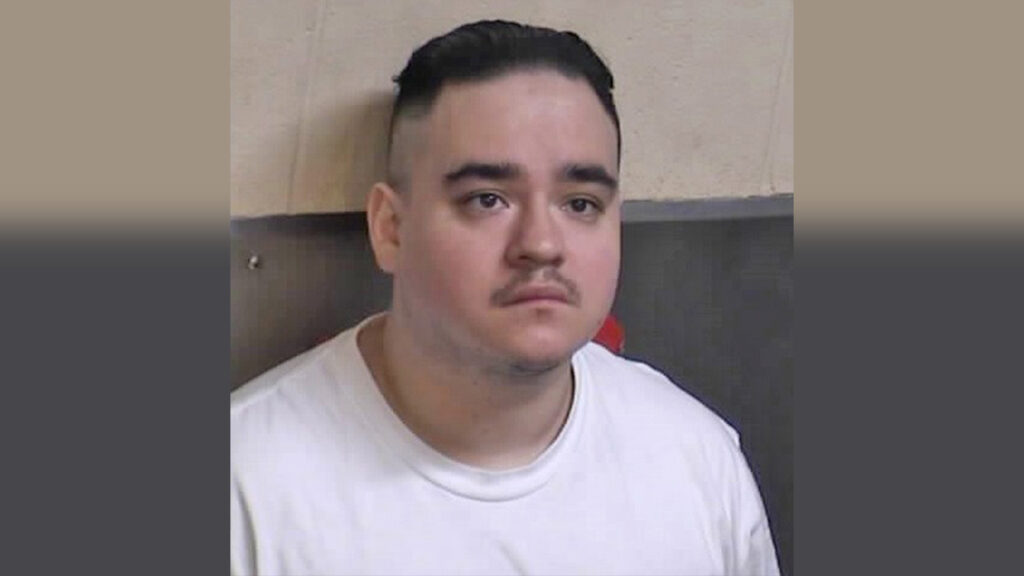California lawmakers received over $1M in donations from gambling interests before a key vote on a tribal casino bill. (CalMatters/Ted Soqui)

- Tribal casinos donated over $1 million to committee members since 2023, including $92,500 just weeks before the vote.
- Card rooms, opposing the bill, gave nearly $393,000 to committee members but lost the vote 15-7.
- Two lawmakers unexpectedly broke with local governments, voting for the bill despite opposition in their districts.
Share
California’s tribal casinos won a key vote on a gambling bill earlier this month after showering members of an obscure legislative committee with more than $1 million in campaign donations since the start of last year.

Ryan Sabalow
CalMatters

Jeremia Kimelman
CalMatters
That included funneling $92,500 in campaign donations to key members of the committee in the weeks before the vote.
The tribes’ competitors, private card rooms, see the legislation as an existential threat both to their businesses and to city budgets across the state. But the card clubs lost the vote despite giving members of the committee nearly $393,000 in campaign donations over the past year and a half.
They did get support from the committee’s chairperson, who received the largest share of the card rooms’ cash.
Her opposition wasn’t enough to kill the bill, which needed 12 of the 22 members of the Assembly Governmental Organization Committee to pass. In the end, Senate Bill 549 passed with 15 “aye” votes including two from legislators who unexpectedly broke with local governments in their districts, and one from a legislator who was temporarily placed on the committee to fill in for an absent member.
It is illegal for legislators to pledge a vote in response to a cash contribution. Members of the committee told CalMatters the influx of gambling money to their campaigns didn’t influence their decisions.
But the fact that two influential interest groups showered committee members with so much money in the lead up to a key vote suggests spending big makes a big difference, and the public should assume it does, said Sean McMorris, the transparency, ethics and accountability program manager for California Common Cause.
“No politician is ever going to tell you that money affects their vote, but the public isn’t stupid,” McMorris said. “It’s pretty darn suspicious that most of them voted based on where they got the most money from.”
The vote also shows why the Governmental Organization Committee is known as a “juice committee,” which typically considers high-stakes legislation for businesses likely to try and influence the vote by donating to committee members. The committee has twice as many members as most legislative committees, and it provides the leaders who make committee assignments with a way to reward political allies.
“That’s why they’re called ‘juice committees,’ so you can squeeze the money out,” said Stacy Fisher, a former political scientist who studied juice committees as a professor at University of Nevada, Reno.
Related Story: Legislation Pandering to Tribal Casinos Is a Bad Bet for Fresno Cardroom ...
High-Dollar Gambling Fight
For the lawmakers on the G.O. Committee, as it’s commonly called, there are few issues as juicy as this gambling dispute. The fight has become one of the most expensive political battles in California. Combined, the competing gambling interests have donated at least $1.4 million to the committee’s members since 2023.
It’s been part of a years-long lobbying blitz. Last year, one card room alone, Hawaiian Gardens Casino, spent $9 million on lobbying – the second most any group spent to influence state policy. Only the international oil giant Chevron spent more.
Meanwhile, both sides spent a combined $176 million on a failed, tribal-sponsored sports betting initiative in 2022 that included a provision that would have allowed the tribes to sue card rooms.
The tribes, however, outspent their rivals on the initiative three-to-one, nearly the same ratio they outspent the gambling halls in the months before the G.O. Committee voted to advance the measure.
The tribes and card rooms have been fighting ever since voters in 2000 approved an initiative that gave tribes the right to negotiate compacts with the state to host certain house-banked, Las Vegas-style gambling on their lands.
The tribes argue that the state’s 80 or so privately-owned gambling halls have been cutting into their exclusive gambling rights by illegally offering games such as blackjack, baccarat and pai gow poker. By doing so, the tribes contend, the card rooms have stolen hundreds of millions of dollars of revenue from historically disenfranchised tribal communities across California.
They want to sue the card rooms for allegedly breaking the law. But because the tribes are sovereign governments, California courts have found they lack the legal standing to take their business competitors to court. Senate Bill 549, authored by Fullerton Democrat Sen. Josh Newman and 20 bipartisan coauthors, would give tribes a brief window to file a case.
James Siva, chairperson of the California Nations Indian Gaming Association, representing 52 tribal governments, framed the issue as a matter of legal – and social – justice for native peoples.
Noting that Gov. Gavin Newsom has “acknowledged the past atrocities and issued a formal apology for the state sanctioned genocide of native people,” Siva argued that passage of the bill would help California atone for the crimes purportrated against tribes. He said card rooms should also want a judge to settle the matter for good.
“If card rooms are confident in the legality of the games they operate, they should welcome the chance to prove it in a court of law,” he told the committee.

Related Story: This Mob-Era Casino Is Closing on the Las Vegas Strip. Here’s Some Big ...
Cities Count on Card Room Revenue
The card rooms say the measure and the lobbying push behind it from the state’s 70 tribal casinos is unfair. They say card rooms’ annual earnings are barely 10% of what tribal governments make. They argue that if the tribes are allowed to sue, the card clubs wouldn’t be allowed to sue tribes back, and they could go out of business from the ensuing legal fees.
Card room lobbyist Ed Manning told the committee that the California Attorney General’s Office has permitted the disputed games for years. The tribes, he said, are merely looking to kill their competition.
“This is sort of the equivalent of a local government giving a land-use permit to Starbucks,” Manning told the committee. “Starbucks opens up, operates, but the coffee shop down the street doesn’t like it, and so they want to sue Starbucks instead of the city government that gave them the permit.”
The card rooms also have allies in cities across the state whose budgets are tied to card room revenue, the largest being San Jose. The cities say that if the card rooms stop offering the disputed table games, it could force the municipalities to cut police, fire and other city services because their budgets are propped up by the taxes and fees that the card rooms pay local governments.
San Jose City Councilmember Sergio Jimenez told the committee that the city receives $30 million each year from card rooms, enough to fund 150 police officers or 133 firefighters.
“This bill would inject uncertainty into city budgets across the state at a time when revenue levels and economic activity are just beginning to stabilize after the COVID-19 pandemic,” he said.
Related Story: Ohtani to Speak to Media for 1st Time Since Illegal Gambling, Theft Allegations ...
Breaking Down the G.O. Vote
Card room lobbyists thought the July 2 vote by the G.O. Committee would be closer, but two members surprised them by voting with the tribes. One was Oceanside Republican Laurie Davies, whose Assembly district has a card room, Oceans Eleven Casino in Oceanside. Both the city and the card room oppose the bill.
Her campaign received $53,000 from tribal casinos and $12,000 from card rooms since January 2023. She didn’t discuss her position at the hearing, and her office declined to comment.
The other surprise was from Assemblymember Evan Low, a Democrat from Cupertino. He voted to support the measure over the objections of San Jose, which is in his Assembly district.
“It’s pretty darn suspicious that most of them voted based on where they got the most money from.”
SEAN MCMORRIS, CALIFORNIA COMMON CAUSE.
Low is running for Congress and is leaving the Assembly at the end of the year. His campaigns received at least $18,100 from tribes and $12,000 from card rooms since January 2023.
Despite voting for the bill, Low told the committee he had concerns “about the potential for the loss of revenue and also the loss of jobs.” He urged the bill’s author to consider amending it and he suggested he might vote against it if the bill advances to the Assembly floor.
Low’s spokesperson Eddie Kirby said the lawmaker explained his vote in the committee and that “suggesting any other motive is not factual.”
One other potential swing vote was absent from the committee vote.
Assemblymember Reggie Jones-Sawyer, a Democrat from Los Angeles, was recovering from a knee surgery. He told CalMatters he wasn’t sure how he would have voted, though he said he does have concerns “about anyone using the courts to extinguish a business.”
In his absence, Assembly Speaker Robert Rivas subbed in Gregg Hart to temporarily take Jones-Sawyer’s seat. The Democrat from Santa Barbara voted to pass the measure. Hart has received $43,000 from tribes and no money from card rooms in the past year and half.
Rivas didn’t respond to CalMatters’ request for comment. Hart told CalMatters that Rivas didn’t make any mention of why he chose him, but he was glad to take the assignment to support tribes, including one in his district. Hart said the tribe’s members pulled themselves out of “abject poverty” thanks to their casino. He said they deserve their day in court.
“I think this question about gaming is a legitimate question that needs to be resolved,” he said.
Jones-Sawyer is leaving the Assembly at the end of the year, and he placed last during the March primary as he sought a seat on the Los Angeles City Council. His city council campaign received at least $9,000 in donations in near equal amounts from tribes and card rooms, according to donations reported to Los Angeles County elections officials. He has no card rooms or casinos in his Assembly district.
Jones-Sawyer has been on the G.O. Committee for much of his time in office, and he told CalMatters that both factions have donated to his Assembly campaigns over the years.
“It’s been very fortunate that they’ve both been able to help me get back into the Assembly, and then having …faith in me running for city council,” he said.
Another Los Angeles County Democrat, Blanca Pacheco, who received $19,126 from card rooms and $43,500 from casinos, told the committee that given the importance of card rooms in her district, she had no choice but to side with them.
“It is a very, very, very tough vote, and I feel for both sides,” she told the committee. “At some point, I would love to see both sides just come to the table, have more discussions, and hopefully everything can be worked out. But at the end of the day, I do have to vote my district.”
Pacheco ended up not voting, which counts the same as voting “no.” Her office declined to make her available for an interview, but a spokesperson told CalMatters in an email that “often, a decision not to cast a ‘no’ vote is a courtesy to the author.”

Another notable non-vote came from Assemblymember Blanca Rubio, the committee’s chairperson. Her campaign reported $27,500 in contributions from card rooms and affiliated groups in the three months leading to the vote, bumping her total donations from card rooms to $125,000 since January 2023. She also received $95,000 from tribal casinos.
Rubio, who doesn’t have a card room or a tribal casino in her district, told the committee she couldn’t recommend voting for the bill, given the harms the bill posed to communities that depend on the tax revenue from card rooms.
Her office declined to make her available for an interview, but in a written statement she said her position wasn’t influenced by the card rooms’ cash.
“During the last eight years in the Assembly, I have sat on over a dozen committees and voted on thousands of bills,” she said. “Campaign contributions have never been a consideration during any of those votes.”
The bill will next be heard before the Assembly Appropriations Committee, another juice committee.
About the Authors
Ryan Sabalow is a Digital Democracy reporter for CalMatters.
Jeremia is a data journalist who uses code and data to make policy and politicians easier to understand.
About CalMatters
CalMatters is a nonprofit, nonpartisan newsroom committed to explaining California policy and politics.
RELATED TOPICS:
Categories

Can You Help Clovis Police Find Missing 15-Year-Old Girl?

Detectives Nab Suspected Fresno Online Predator


















